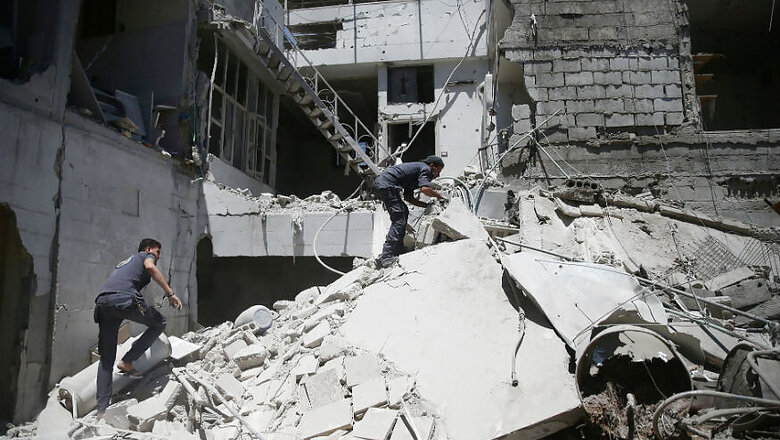
views
The night of 15th July is deeply etched in the mind of Muzaffer Senel when a faction from within the Turkish Army attempted a coup d'état in a bid to topple the democratically elected regime of Recep Tayyip Erdogan. The country, in the past 1 year, has witnessed a substantial rise in terror attacks and has also looked drifting toward increasing authoritarianism.
The coup, for the Erdogan dispensation, did come as a surprise, but the way people thronged the streets the very same night, forced those behind the coup to succumb, indicating that Erdogan hasn’t lost his support base as yet. After all, it was Erdogan whose exhortations brought the people onto the streets against huge military tanks and the red flags fluttered all over turkey.
Muzaffer Şenel, who is currently a lecturer at Istanbul Şehir University, Department of Political Science, Acting Director of Center for Modern Turkish Studies, and an expert in Middle-East and European Union, however, differs with this viewpoint. He believes that the people of Turkey came out that night, primarily, to support the democratic principles and civilian politics.
“Civilians were on the streets, in the squares to protect their rights, democracy. Civilians were against military junta and today we have an effective government in Turkey," says Muzaffer. Erdogan’s rule in the region of Middle-East was always referred to as the perfect embodiment of how ‘Islam and Democracy’ can blend and function without almost any difficulty.
It was not only the AK party people who were on the streets, but all the parties were there, from left to right. Biggest opposition party led a demonstration in support of democracy at Taksim square which is the symbol of these things, even the hooligans were there, supporting democracy, says a hopeful Muzaffer.
However, in 2013, the events at Gezi Park, for the first time, projected the other side of the Erdogan government when suppression took precedence over civilian rights. A project that was personally pushed by Erdogan encountered impediments from the civilians who took to the streets to thwart Erdogan’s project of building an Ottoman styled shopping centre.
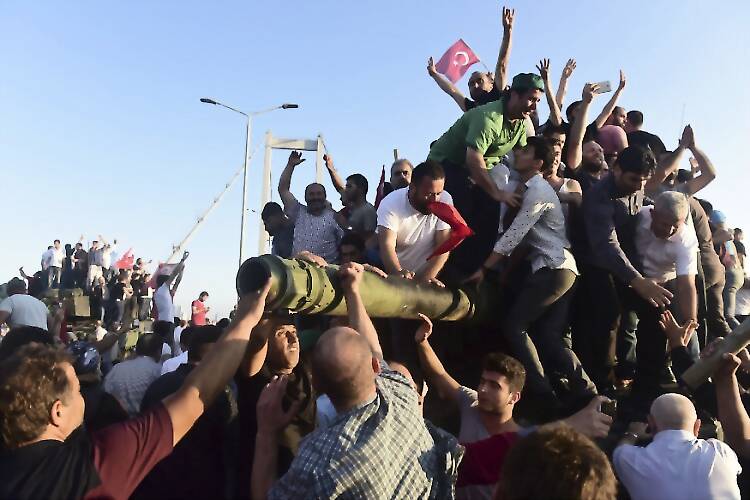
More than 200 people died on 15th July 2016 when a faction from within Turkish Army attempted a coup d'état to overthrow Erdogan. (Picture Courtesy: Reuters)
While the government decided not to demolish the park and build a shopping mall, it did decide to brutally purge demonstrations; the police evicted hundreds of thousands of people vigorously. Turkish politics, since then seems to have changed a fair bit. Erdogan regime has become increasingly assertive, at times propagating Islamist ideas and receiving flak from all quarters.
The rise in the number of terror attacks and now a coup attempt that sent shockwaves across Turkey could further result in rising vigilantism by Erdogan regime. Many in the west also believe that Erdogan would utilize this failed coup attempt to destroy his opponents as the administration is on a detention spree since the night of 15th July.
However, Muzaffer has different ideas. He thinks neither a party nor the President himself is over and above the will of the people in Turkey. “Turkish people are stronger than AK party or Erdogan. These people were there to support civil politics and civil political parties. People were there to protect civil rights and Erdogan is a symbol of those rights as of today. If people don’t like Erdogan, for sure Erdogan will lose power," says Muzaffer.
Islamic State of Iraq and Syria, Civil War and Assad Regime:
The year 2014 brought unprecedented turn to the war against terror as the world witnessed the arrival of the Islamic state of Iraq and Syria (ISIS). What also shocked the world was the ascension of the ISIS due to a variety of reasons. Known by different names such as ISIS, IS, ISIL and Daesh, this group of bigoted terrorists has inflicted brutal assault on civilians in Iraq and Syria. From high-quality propaganda videos to mass beheadings, the group has resorted to every possible means to instill fear in the minds of people.
In 2016, Iraq and Syria are in ruins. Some of the regions in Syria have been deprived of humanitarian aid, hospitals have been attacked and besieged towns have become open prisons. The violence hasn’t halted, and ISIS is believed to have spread its sleeper cells as far as Australia, South Asia, and many European countries where it regularly carries out deadly attacks.
Two of the Former Envoys to Iraq and Syria, Kofi Annan and Lakhdar Brahimi have vehemently criticized the international community for having not done enough to curtail violence. Kofi Annan, in his book Interventions, says that most of the evidence that the US used to support Iraq war was circumstantial and it was never proved that Saddam was in possession of weapons of mass destruction, as Bush- Blair duo claimed.
Muzaffer and various other noted authors and experts such as Peter Cockburn, Tariq Ali, Noam Chomsky and former US Ambassador to Croatia Peter W Galbraith seem to be on the same page as far as the arbitrary invasion of Iraq is concerned. Muzaffer underlines three main factors why Iraq plunged into violence and sectarian schism came to the fore.
Mismanagement of Iraq in the post-invasion period; reckless transition of power that broke traditional Shia and Sunni power balance in Iraq and power vacuum because the Army was disqualified (read dissolved) led to the formation of various gangs and militias who took over, says Muzaffer.
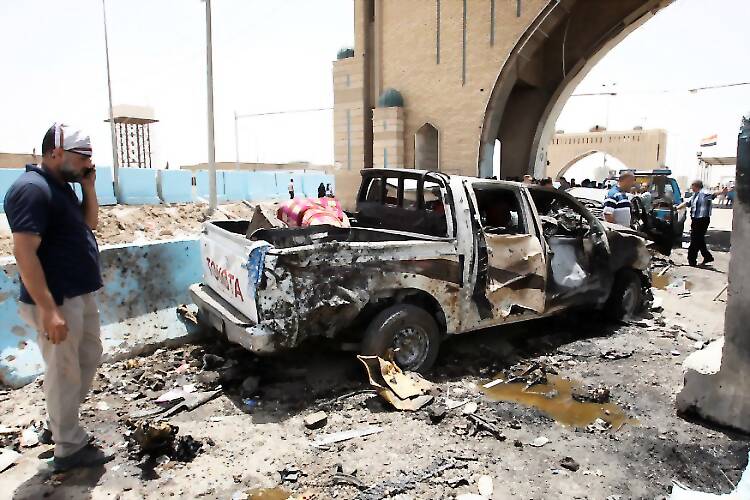
On 3 July 2016, in the deadliest bomb attack in Iraq since 2003 , more than 300 people were killed in Baghdad. (Picture Courtesy: Reuters)
Muzaffer also refers to the way crisis was dealt with in Iraq and how it is different from the way the west supported the Eastern Europe in the 1990s when not only did the Berlin wall fall, but the Soviet Union also got dissolved.
They (West) didn’t bring in any solution, but this didn’t happen in the 1990s in the Eastern Europe, they supported democracy. They supported them, democratically, politically, and security umbrella was also given. Why don’t they offer the same to Iraqis, is it because they (eastern Europeans) are humans and the Iraqis are quasi-human," Muzaffer laments. “Yes, Saddam was a dictator but there was no war, no killing, no bombs no massacre, now everyday Iraqis are dying, he further adds.
All of this seems to have been further vindicated by Sir John Chilcot’s report that slammed former Prime Minister of the United Kingdom for having not only exaggerated the threat posed by Saddam but also committed the UK in haste based on flawed Intelligence.
Syria, however, is a different case altogether. The wave of Arab-Spring, a call for fundamental rights; which till now had remained elusive under various dictators across the region, reached Syria and quickly brought people to the streets. Many, including Hosni Mubarak, Muammar Gaddafi, Ben Ali had either fallen or been on the verge of collapse.
After five years in 2016, the only thing that has remained the same is the president of Syria, Bashar-al-Assad. The number of civilian deaths has risen to a mammoth 400000 as per the latest reports and the civil war has displaced more than half of the total population. Assad regime is believed to be controlling just over 17% of total Syrian territory, the rest being under siege of ISIS, Al-Nusra Front and various other Militias backed by the west and Saudi Arabia.
Assad and Syria are the greatest tests of our generation. This is a humanitarian crisis and we should take care of this humanitarian crisis. Assad regime is committing atrocities, committing massacres, and the Syrians are facing a genocide, says Muzaffer.
All the efforts against the ISIS have fallen flat and the group continues its brutality in the name of Islam. Assad, on the other hand, backed by regional ally Iran and Russia, has repudiated all the prospects of peace wherein his resignation has been at the forefront of affairs. “Syria has become a concentration camp like we had in the world war two. Syria is being bombed every day. Aleppo is being bombed every day. There are crimes against humanity in Syria and the international community should help," says Muzaffer.
After five years of this cataclysmic war that doesn’t seem to be ending, life expectancy in Syria has reduced almost by two decades. Schools, hospitals etc have been laid to ground further exacerbating the misery of people. The solution, however, still doesn’t seem to be in sight.
Saudi Arabia and Iran:
In international politics, for years, the foreign policy of countries has been dictated by their geopolitical interest, regional hegemony, having their sway over weaker states and supporting different parties and policies leading to their direct or indirect interference in the internal affairs of others. Saudi Arabia and Iran, arguably the most powerful of all the Middle-East countries, have perennially stood on the opposite sides.
From the Iraq-Iran war in the 1980s to the civil war in Iraq and Syria, Saudi Arabia and Iran have always ensured that their interests get served. “This is because of the selfishness of Iran and Saudi Arabia. For Saudi Arabia, democracy is a threat to the regime itself. Iran is semi-democracy because the elections are not fair and are controlled by Wilayat-e-Faqih(Central axis of Shi’a Political thought). Iran and Saudi Arabia are traditional enemies. They see each other as ontological other," says Muzaffer.
During the course of the civil war in Syria, Saudi Arabia and Iran have supported various factions. Saudi Arabia and West have supported and armed ‘moderate rebels’ as they like to call them, while Iran has wholeheartedly backed the brutal Assad regime. Vladimir Putin, after having fought a war in Ukraine, intervened in Syria too on the side of Assad and guarded his fort against falling to the ISIS.
US President, Barack Obama thought that Russian intervention could have wider ramifications and it would become difficult for Putin to extricate himself from Syrian quagmire. However, Russia has already started withdrawing, certainly after realizing what happened back in the 1980s when the Afghan war led to their economic destruction and eventually dissolution.
Refugee Crisis and Far-right in Europe:
The Civil war in Syria and Iraq, ISIS’ barbarity, Saudi Arabia’s onslaught on Yemen etc have made the lives of civilians in these areas extremely difficult thereby triggering another crisis. More than 1 million refugees fled their respective countries in 2015, most of them Syrians and Iraqis, and sought asylum in Europe. However, their voyage from Turkey, in most of the cases, to the countries such as Macedonia, Greece, and Hungary through the Mediterranean Sea is at the peril of their life.
More than 4000 migrants have already drowned in the Mediterranean Sea owing to the dilapidated state of ferries. Some of the boats also capsized because they were stuffed with migrants beyond their capacity. In 2015 alone, Germany received more than 450000 asylum applications, but the Refugee crisis is reflective of the failure of some of the dominant countries in the middle-east such as Saudi Arabia, Iran, Qatar and Organisation of Islamic Cooperation (OIC).
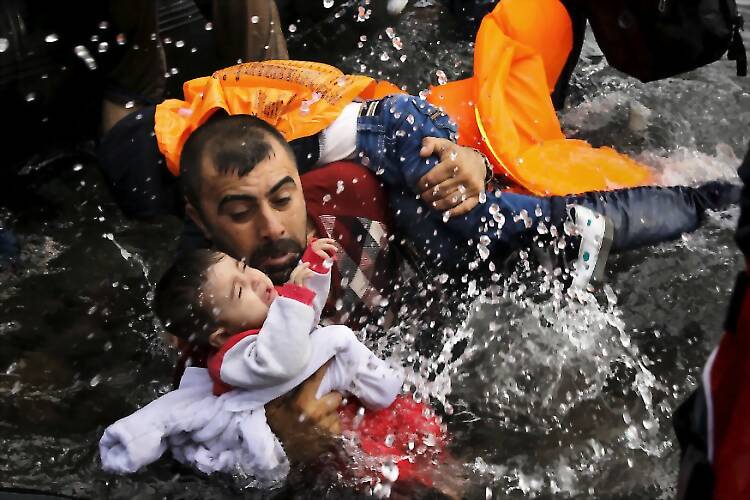
A refugee grapples with water waves in the Mediterranean Sea. More than 5000 refugees have already drowned as fragile boats continue to capsize frequently. (Picture Courtesy: Reuters)
It is the fault of the Muslim states. OIC has 56 Muslim states and only Jordan, Turkey and Lebanon are taking care of refugees. This is our responsibility to protect these refugees from Assad. This is a pity. Why Muslims are flowing to Europe and not to Malaysia, Saudi Arabia, Iran or any other Muslim country, says Muzaffer.
While the Muslim countries fail to accommodate refugees, the rise of Far-right in Europe has also aggravated the crisis. With the rise of movements such as PEGIDA and parties such as Alternative for Germany (AfD) have resorted to anti-Islam rhetoric very often and scored well amongst their supporters. AfD went on to propose a ban on the mosques in Germany. This nationalistic wave has smitten countries such as the United Kingdom where Ukip backed Brexit and posed the refugee crisis as the biggest impending infringement on the UK.














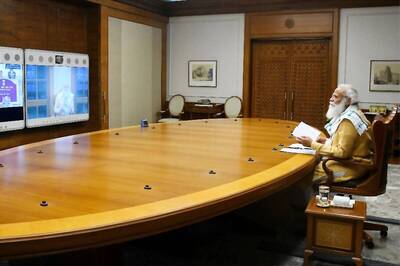



Comments
0 comment